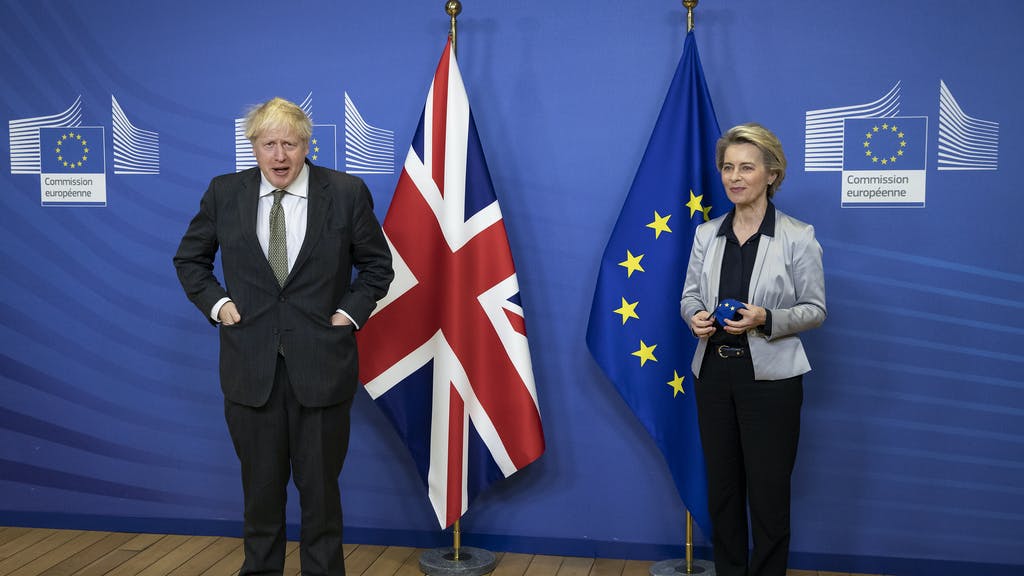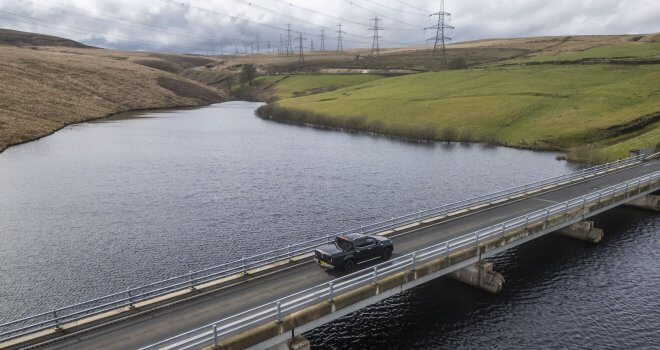What Post-Brexit Issues Do UK Businesses Face?

The last-minute UK-EU trade agreement saw British businesses breathe a sigh of relief that a no-deal Brexit scenario had been averted.
The deal means the UK has access to its biggest export market tariff-free and quota-free, but the end of the transition period from December 31 will still see companies having to make adjustments to their operations.
Here, the PA news agency looks at some of the issues they face:
– Lack of readiness
Earlier this month, before the trade deal was concluded, MPs on the Commons Brexit Committee outlined concerns about the “overall state of readiness” for the end of the transition period.
They said decisions had been made “too late”, communications with businesses were “patchy at best” and the “late delivery” of IT systems for customs made training and testing difficult.
Maddy Thimont Jack, associate director at the Institute for Government (IfG) think-tank, wrote on its website that the last-minute trade deal left “dangerously little time” to prepare for what it meant.
She warned the complexity of rule changes could see businesses “behaving illegally, by accident” if they have misunderstood them.
– Extra red tape
Charles Grant, director at the Centre for European Reform think-tank, warned that manufacturers and farmers will face “irksome” checks at borders in relation to customs, VAT, safety and security and plant and animal health.

Hauliers and trade bodies representing supply chain businesses fear this could lead to delays and extra costs that could be passed on to consumers.
Cabinet Office minister Michael Gove admitted some “bumpy moments” are likely as the new arrangements come into effect.
Ms Thimont Jack said Brexit means “swathes of red tape and additional costs” for businesses.
She said the lack of “blanket mutual recognition of conformity assessments” means many “goods will need to be certified by both UK and EU authorities to have access to both markets”.
She added: “There is also no mutual recognition of the sanitary and phytosanitary regime – which means goods of animal and plant origin will be subject to more checks at the border.
“In some sectors, including pharmaceuticals, automotive, chemicals and organics, there are further facilitations, but for most there will be significant barriers.”
The IfG said that to qualify for tariff-free market access, British goods will need to meet “rule of origin” requirements with product supply chains having to meet percentage thresholds for content.
It said: “Some industries, especially food, will simply be unable to do this: cane sugar imported from the Caribbean and refined in the UK will not qualify for access to the EU tariff-free, nor will basmati rice imported from India and milled in the UK. Any meat product must contain only meat from animals born and raised in the UK or the EU.”
– No mutual recognition of professional qualifications
In a blow to the UK’s services sector, the trade deal lacks a mutual recognition of professional qualifications.
Ms Thimont Jack said: “It will be much more difficult for many professionals to deliver services in the EU, with rules differing member state by member state.”
An IfG analysis said there were “enormous numbers” of exceptions covering market access provisions in the trade deal.
For example, it said UK nationals will not be able to sell actuarial services in Italy or construction services in Cyprus, or to be surveyors in Bulgaria or tobacconists in France.
– New rules on business travel
The trade deal permits short-term British business visitors to the EU to stay for 90 days in any six-month period.

But the rules mean that activities allowed without the need for a work permit are limited to such things as meetings, consultations, research, training and trade fairs – with variations between member states also applying.
Selling goods or supplying services to the public are not covered by the short-term business visit provisions.
UK Government guidance says visas or permits may be needed for business travel and advises travellers to check each country’s rules.
– Potential for disagreement over the rules
London and Brussels agreed a floor for standards for areas like the environment and labour rights, with this level playing field being reviewed in four years.
But Irish deputy premier Leo Varadkar warned that if the UK deviates too far from EU standards its access to the European market could be threatened, saying it was “not unconditional”.
A European Commission summary of the deal said either side has “the right to take unilateral measures to safeguard their economies against unfair competition from the other party”.
The document said a “dispute settlement mechanism” covers most areas of the trade deal, including the level playing field.
Accompanying “enforcement and safeguard mechanisms” include the possibility of tariffs or quotas being reintroduced for an affected sector.
– The deal contains gaps
Two key issues left unresolved by the trade deal are “data adequacy” and “equivalence for financial services”.

The EU is yet to decide if the UK’s personal data protection regime is adequate to allow the flow of information between the two sides. Restrictions in this area could hit British business competitiveness.
Temporary arrangements for a period of up to six months will permit data flows until an adequacy decision has been reached.
There is little detail on financial services, a key UK export, with it yet to be determined if the EU will unilaterally decide the UK’s laws and regulations are equivalent to its own.
The UK and EU have committed to agree a memorandum of understanding on establishing a framework for regulatory co-operation in financial services by March.




